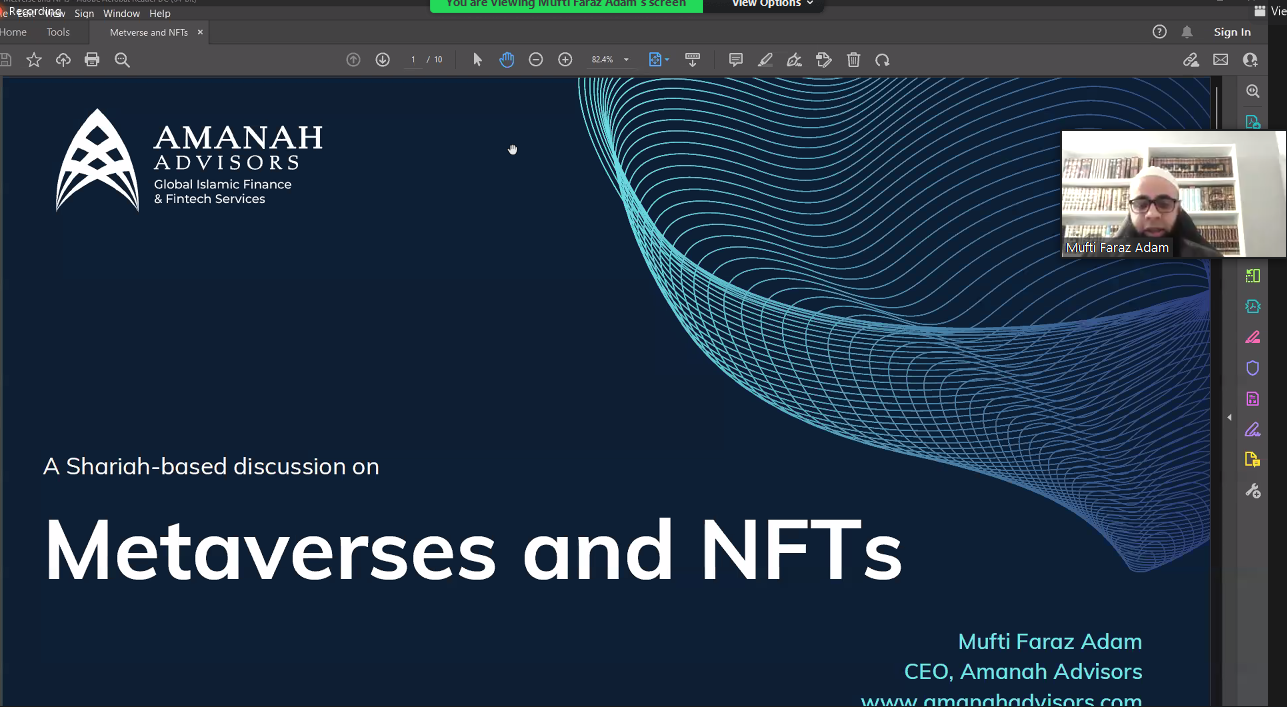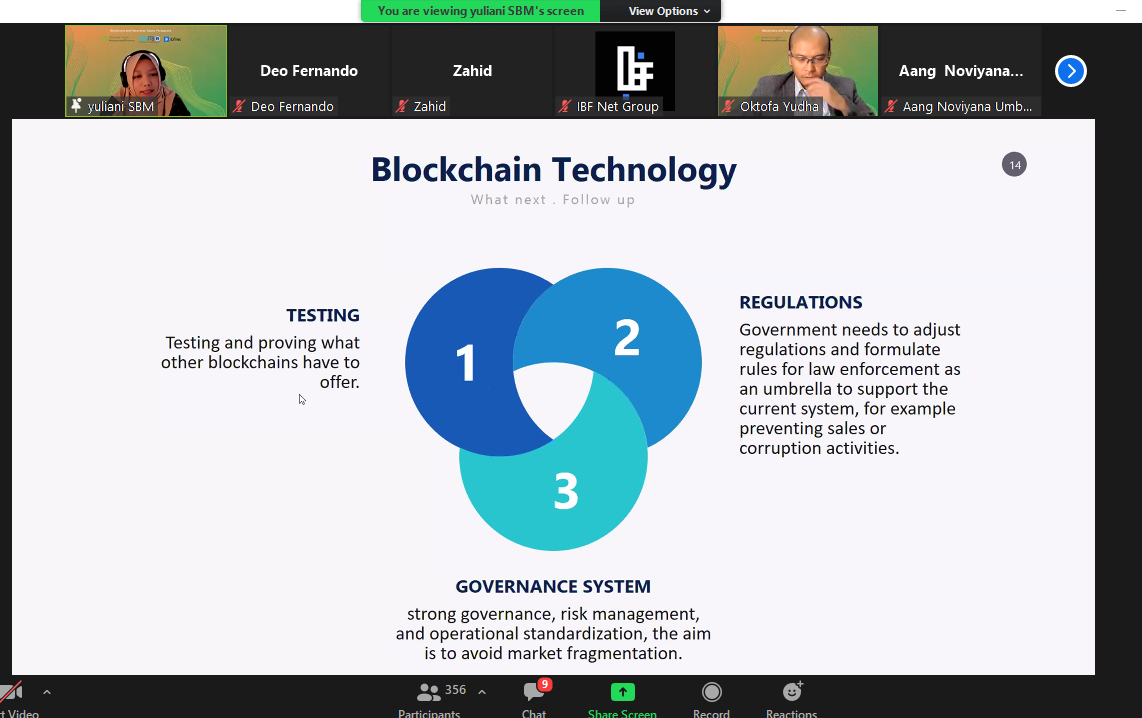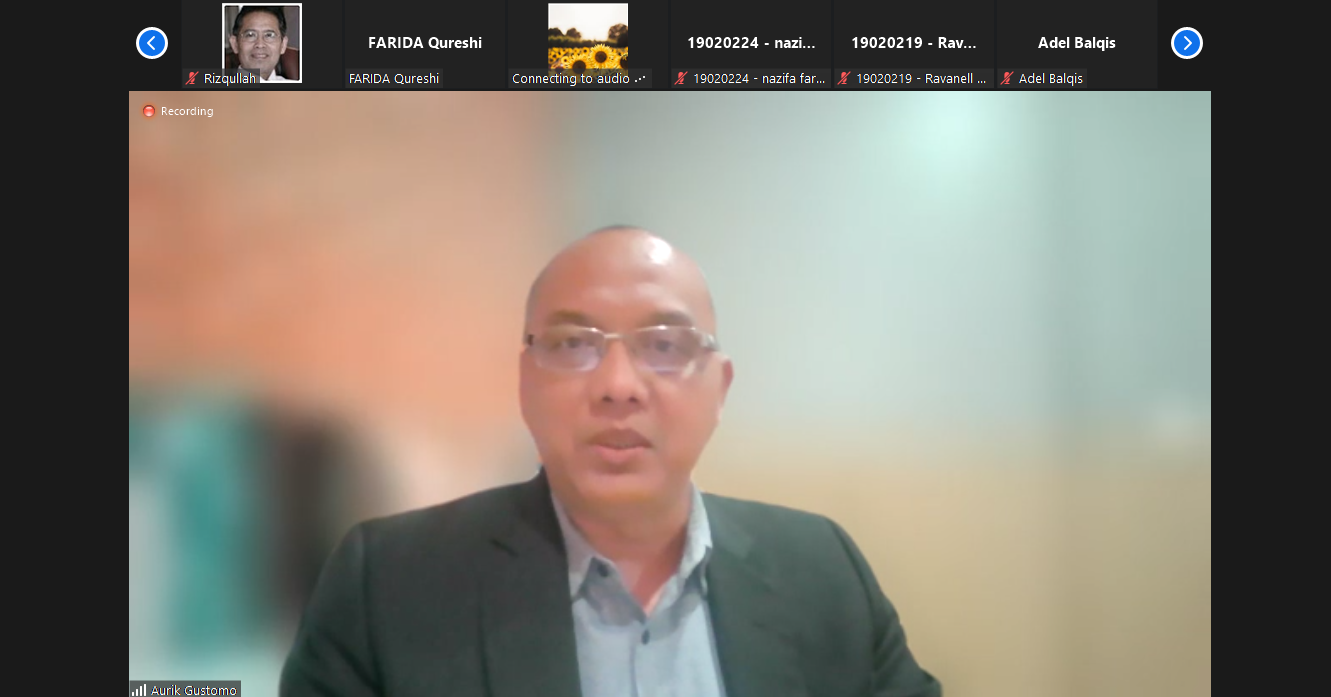Metaverse is a virtual world that we can create and explore with other people in a different physical world. The question is whether the metaverse is halal or haram.
Mufti Faraz Adam, from the Yaqeen Institute for Islamic Research, United Kingdom, explained that to see whether the metaverse is halal or haram, several points must be considered. The first is its utility. “Whether the technology has a positive impact on our lives,” highlighted Mufti at a webinar entitled “Blockchains and Metaverse: Islamic Perspective”, held by SBM ITB through the Center for Islamic Business and Finance (CIBF) in collaboration with IBF Net Group, online on Friday (11/2/2022).

Mufti emphasized that if something does not bring benefits, of course, in Islam, it is not allowed. Mufti also highlighted the importance of seeing the impact of this technology in the real world. It should be avoided if the metaverse interferes with a person’s real life, such as interfering with his obligations as a Muslim or his daily life. “Does our involvement in the metaverse interfere with our obligations as Muslims, as well as our daily obligations, and does it have a bad impact?” asked Mufti.
In addition, Mufti added, it is also important for us to look at the metaverse in terms of design and experience offered. For example, does the metaverse consist of any designs that are forbidden in Islam, and are there any experiences offered that are contrary to Islamic provision? If the harm obtained in the metaverse world outweighs the good, then it is better to leave it.
In line with the view of the Mufti, Yuliani Dwi Lestari also discuss blockchain technology based on its benefits.

However, Yuliani highlighted the importance of regulation, management systems, and testing to utilise this blockchain technology positively.
While Aurik said blockchain is a pillar of what sparked the 4.0 revolution, further understanding is needed regarding whether the technology is halal or haram from an Islamic perspective. In addition to Blockchain, Aurik also highlighted the development of the metaverse, which is currently growing rapidly and requires further discussion regarding Islamic law.





